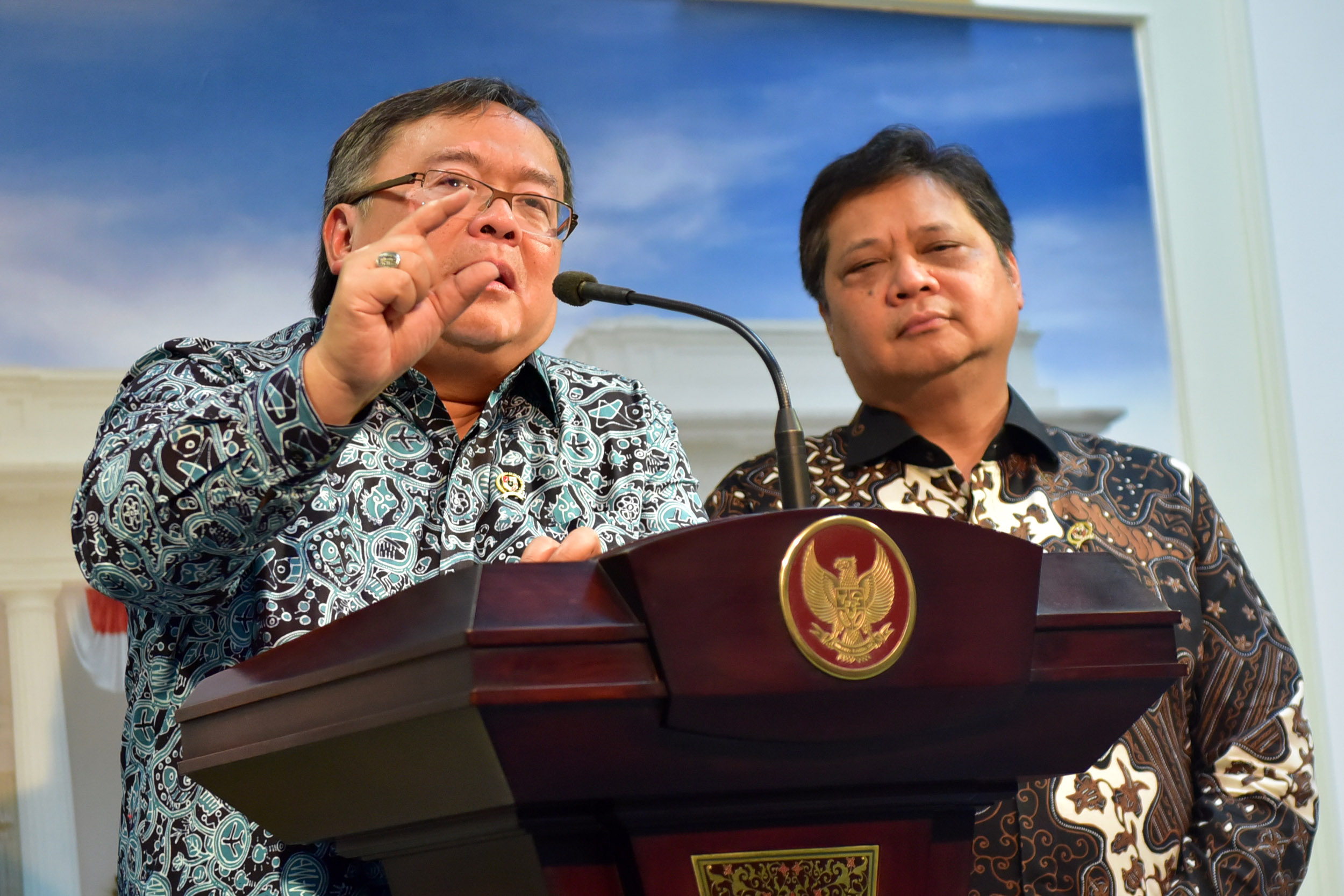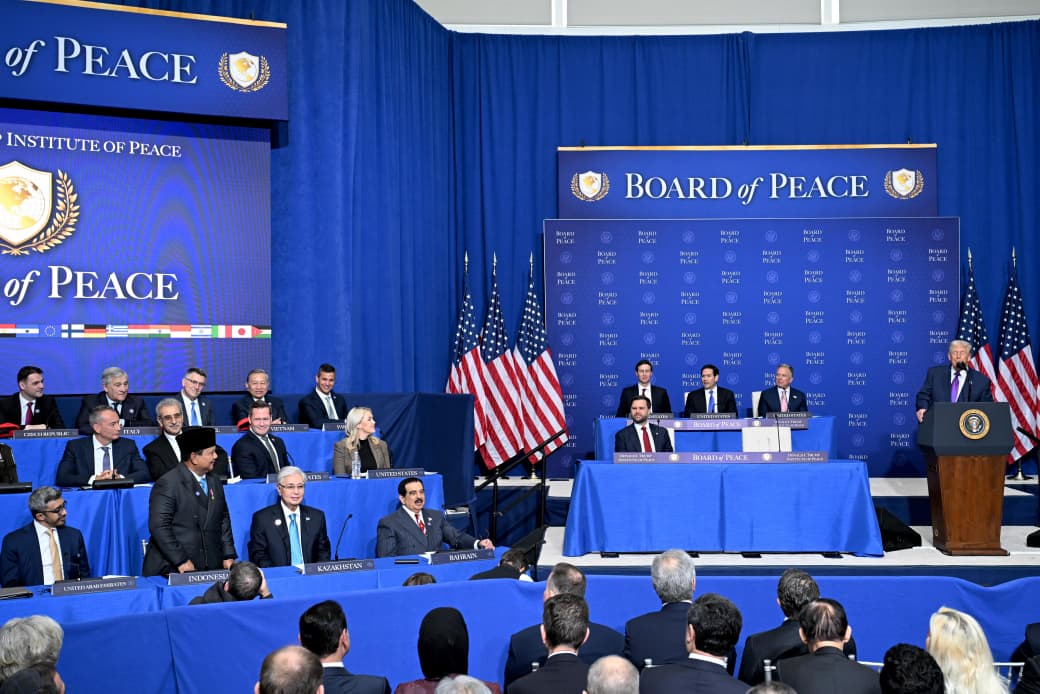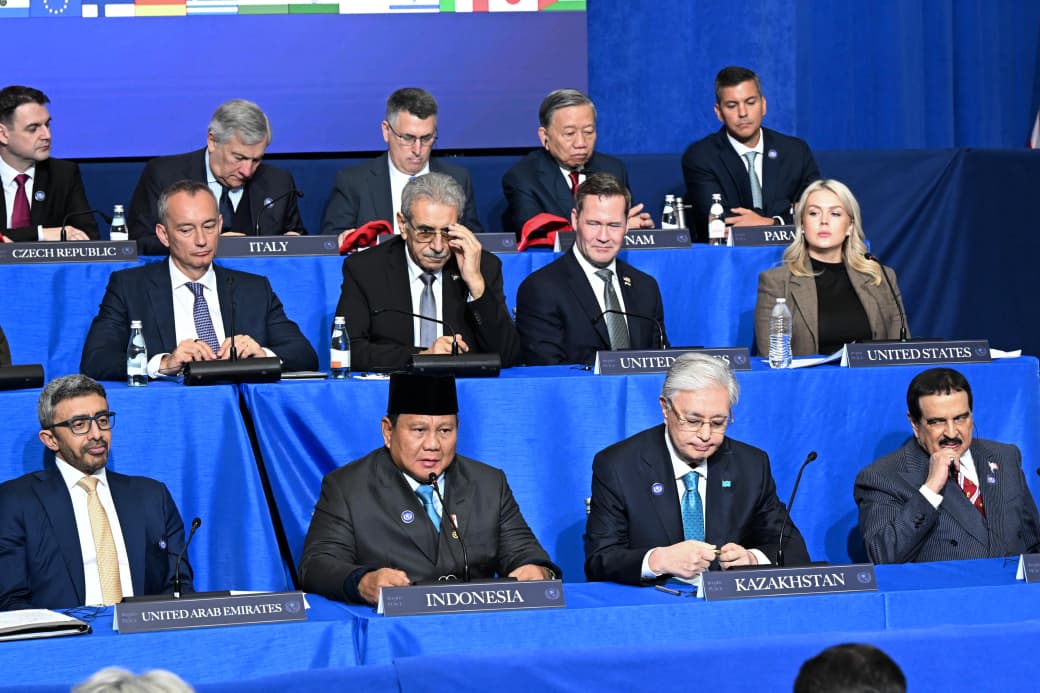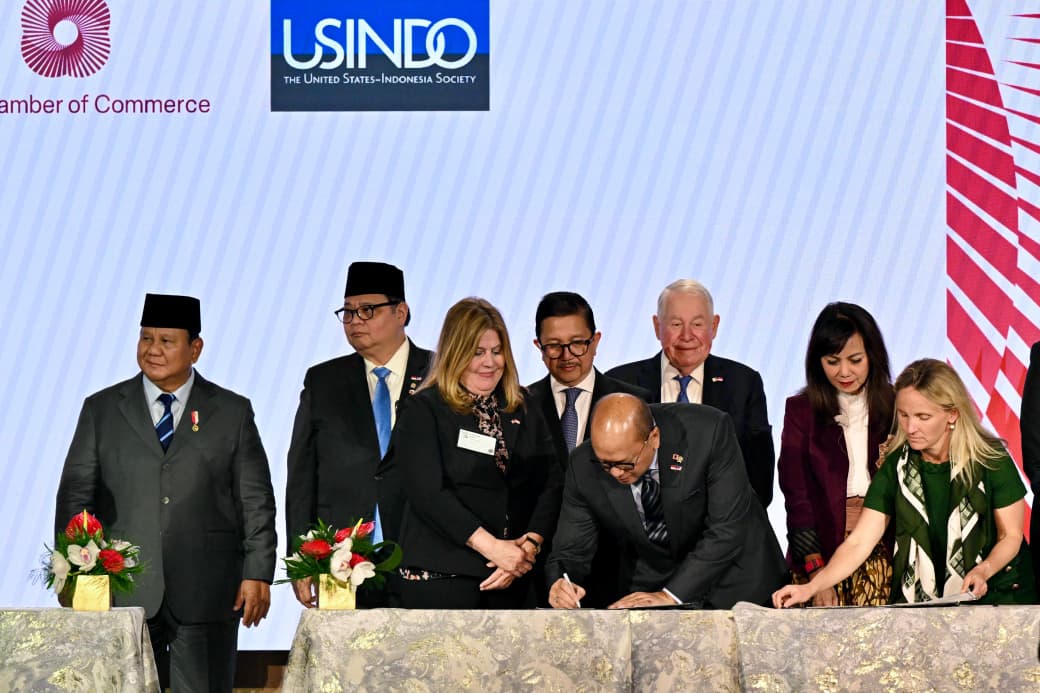Gov’t Committed to Developing Innovation: Research Minister

Minister of Research and Technology/Head of the National Innovation and Research Agency (BRIN) Bambang Brodjonegoro delivers statement during a press conference at the Presidential Office, Thursday (6/2). Photo by: PR/Rahmat.
The Government will develop national innovation program, including by producing Drone, Catalyst, and Integrated Salt in collaboration with business entities.
The statement was made by Minister of Research and Technology/Head of the National Innovation and Research Agency (BRIN) Bambang Brodjonegoro during a press conference at the Presidential Office, Thursday (6/2).
“The initial plan is that we will produce drone for military purposes and for surveillance in 2024,” Bambang said, adding that the President has instructed to accelerate the production process from 2024 to 2022.
“The drone is designed by the BPPT (Agency for the Assessment and Application of Technology) and the LAPAN (National Institute of Aeronautics and Space) and the Balitbang (Research and Development Agency) of the Ministry of Defense. The drone will be produced primarily by two State Owned Enterprises, namely PT Dirgantara Indonesia for drone manufacturing and PT LEN for weapons, sensor systems, and radar systems,” Bambang added.
The Minister also said that he has proposed budget revision to achieve the target, namely mass production of the drone, adding that drone is pivotal in maintaining national security, including in border areas.
The next product, Bambang added, is green Biofuel.
“The innovation is in the form of a catalyst, which we call the Red and White catalyst. The catalyst, discovered by a team led by Professor Subagyo from ITB, can change palm kernel oil,” he said. The Minister added that there are three types of derivative products from the oil, namely gasoline, diesel fuel, and aviation fuel.
Bambang went on to say that the next step is to build an industrial vegetable oil factory to produce palm kernel oil from plantation. The program is supported by the Ministry of State-Owned Enterprises and the Agency for Palm Fund Management.
“We will start two pilot projects in two regencies, namely Musi Banyuasin in South Sumatra and Pelalawan in Riau,” the Minister said.
The third product, Bambang added, is stem cells for the treatment of bone that has been commercially produced by the Faculty of Dentistry of Universitas Indonesia, Cipto Mangunkusumo Hospital (RSCM) and PT Kimia Farma. “It has been proven successful to heal bone injuries and broken bones,” he said.
Bambang added that there is also another product, namely anti-aging stem cell in the form of a cream to be applied to the skin, produced by Airlangga University by PT Phapros, a subsidiary company of State-Owned Enterprise.
Another innovation in health sector, he added, is bone implants made of titanium which is used to replace lost bones. The product is designed by the BPPT and is produced by a company in Surabaya.
“The President has encouraged Government hospitals and State-Owned hospitals to start using the artificial bone implants in the country as a substitute for imports,” Bambang said.
Another innovation in health sector, Bambang added, is import substitution for drug ingredients. The program is expected to be integrated with the National Health Insurance system.
Bambang further said that another priority product is integrated industrial salt.
“The BPPT has designed a production machine that can make regular salt with low NaCl content to be processed into industrial salt, so it can get a better price,” he said.
Another product in innovation is canned food. “The LIPI is using food technology, without preservatives and chemical substance, to produce canned food,” Bambang added.
The LIPI, according to Bambang, will be encouraged to produce up to 400 types of canned local food
“Today we have 50 prototypes of canned local food, and we encourage Small and Medium Enterprises (SMEs) to develop canned local food,” Bambang said.
The last product, according to Bambang, is flat keel for vessels. “The vessel with flat keel does not use fiber but uses steel,” Bambang said, adding that the President has ordered Minister of Marine Affairs and Fisheries to encourage the using of flat keel for fishing vessels because it has larger size and faster than vessel with fiber, while the cost is 30% cheaper. (FID/EN)
Translated by: Ridwan Ibadurrohman
Reviewed by: Yuyu Mulyani







